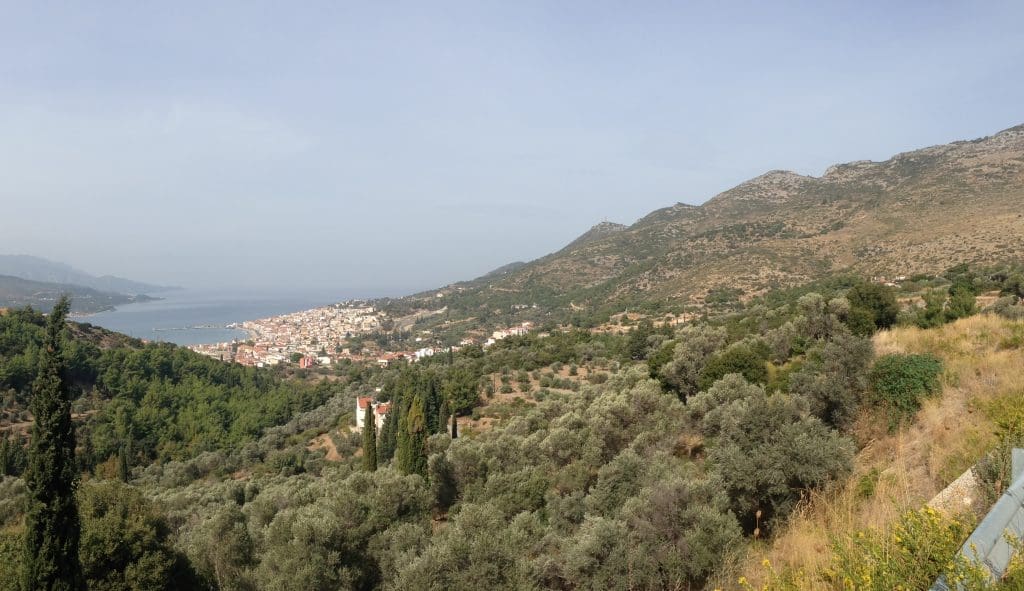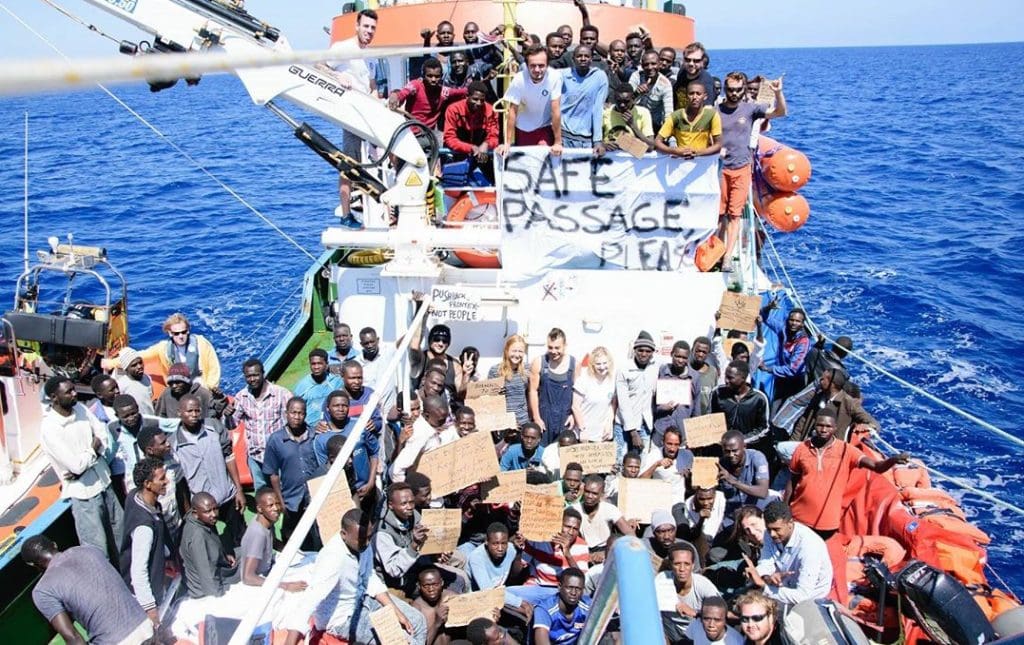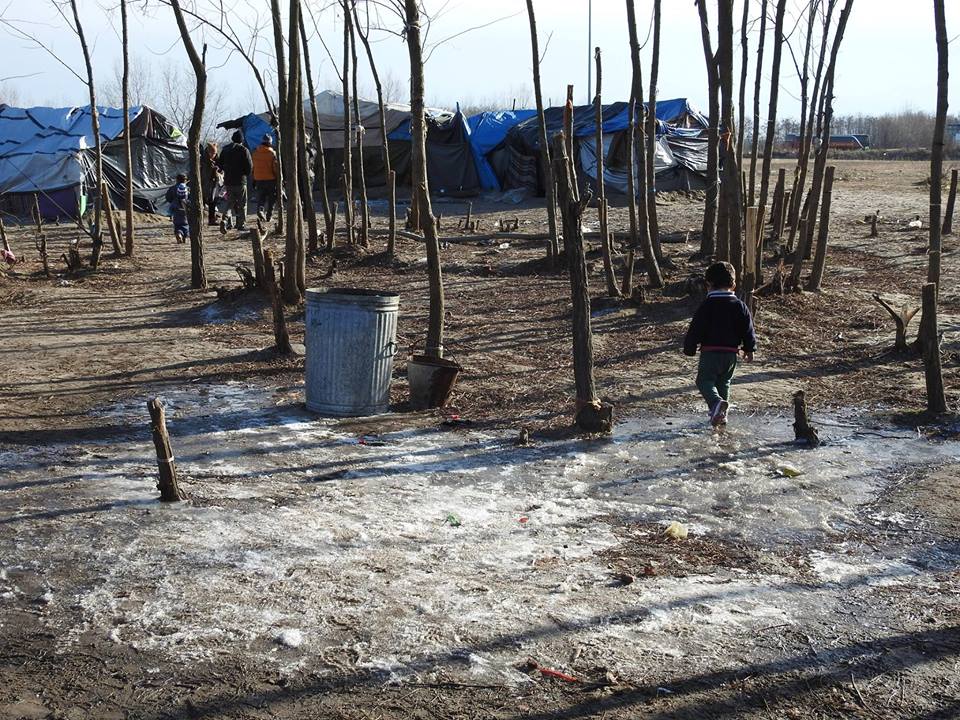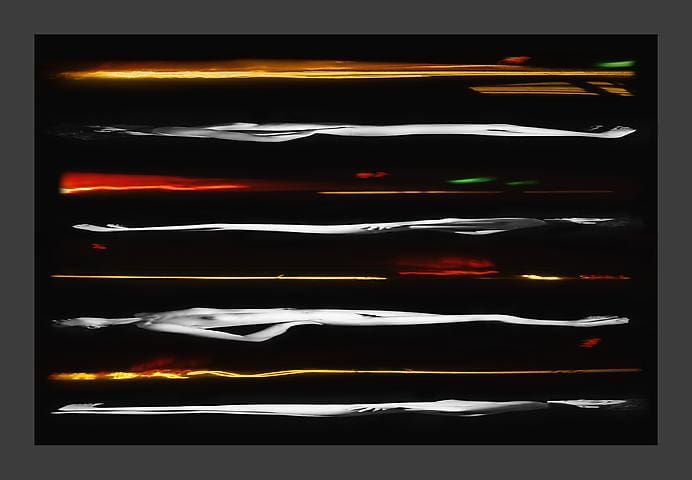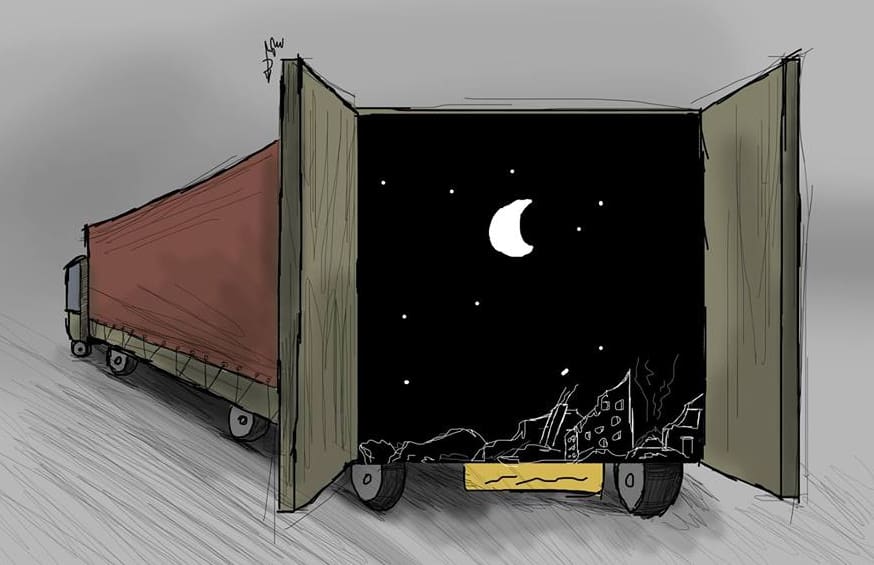Saad on Samos
Two poems and the testimony of a Syrian stranded on Samos for nearly a year
by Saad Abdllah for Samos Chronicles
28 July 2017 (original post)
Kiss the Jasmine
Take me to kiss the jasmine
Let me stand on the threshold of your garden
Let me smell what I long for
Among the grains of sand on your beach.
Don’t kill the lovestruck stars
Don’t tell the sun and the moon to be silent
Let them speak.
Oh you, who can pass into the future
Take from my hand the key to my house,
Take my name, take a jasmine.
Because now I’m homeless between my past and your future
Between the sea, the tent, and the harbor.
Why do you use my name but abuse my being?
I curse you in the name of god.
Why do you injure my soul and my mind?
I curse you in the name of god.
Why do you think your blood is different from my blood?
What disgusts you with my name – ‘refugee’
– You who gave me this name?
I have never been an enthusiastic supporter of President Assad, but before the war life was not so bad in Syria. We had free education from primary school to doctorate. The teachers were very nice and good in the university. Our hospitals and doctors were good and all this was free. Now I hate armies. They have destroyed my country. My university was bombed two times while I was in class there. One time they hit the food hall and another time one of the dormitory blocks. Over one hundred students died. This is what armies do to us.
I like to study, but the war made this more and more difficult. It was so dangerous that I studied at home with my mother’s help during my final year of high school. At the same time I was working in a pharmacy near where I lived. I very much wanted to study pharmacy at university but my final grades were not good enough so I chose my second love, which was archaeology, and started my degree at Aleppo University.
My home was in a Free Army area, but the university was in the government area although it was very near to where I lived. It became very difficult. If I were stopped by the Free Army I could never continue with my studies. By being very careful I managed to complete the first year of my course. With my boyfriend (H.), we made a home in the small house my father had had built for me. While I studied, H. worked as a hairdresser until he moved to Turkey. Then one summer’s day I got a phonecall from my mother, who was now in Turkey: she had left some important papers which I would need in the family home. She was worried that the house would be robbed because it was now in a Free Army area. So I went. I thought, ‘just a few hours to get the papers and then back home.’ I never returned. Instead I was stopped by a Free Army patrol. They wanted my Army Book which we all have to carry, and this showed them that I was a university student and therefore allowed to stay out of the army. I told them how much I wanted to continue with my studies at the university, and that if they had a university I would go there. They told me that they were against universities and studying. It was not necessary. They took my paper and told me to return in a few days. I was lucky to have a friend who still had his business in this area, and he made contact with some people he knew in the Free Army; this allowed me to get my papers back the next day. But they had put a Free Army stamp in my book which meant that I could never go back to the university in the government army area. If I was caught it would be straight to hell. So I left for Turkey immediately.
I had to think and act quickly as I was now in danger. Being gay made it all the harder, as we have no rights at all in Syria. The Free Army is very clear that it will kill gay people. The government side might not kill us, but they treat you very badly if they think you are gay, or not manly. Like one of my friends: the police stopped him because they said he was not walking like a man. They wanted to fuck him but he refused. He went to prison for three weeks. It was terrible. They said to my friend that this was a lesson! So you can live as a gay person in Syria, like I did with H. It is possible. But you have to hide your feelings and sexuality. You are never safe.
Into Turkey
I paid $200 to be taken in the night by car with four others to the border with Turkey. We then waited until around two a.m. to go on. We walked for about an hour through a pipe, in waist-deep water, and then onto a road. On this road, we were caught by the Turkish army. They took us in a car to a prison, where we waited until four p.m. We were outside and it rained all day, which is normal for this mountainous area in September. We were very wet, and we asked for some cover but they said they had nothing. We had no food. This is how we were from eight in the morning until four in the afternoon: sitting in the rain with only some guard dogs walking around us.
I knew no one in the group. I was very, very hungry. In this situation I knew I could do nothing. I just sat and looked, wondering what would happen next. Sometimes I cried. But mostly I just sat and looked.
At four p.m. they came and took our photographs and then said, “Go.” This prison had two doors: one into Turkey and one back to Syria. We went out the door for Syria. Outside was the man who had brought us from Syria, and he told us to shelter under the trees while he found another way. We waited until around midnight, but I cannot be sure as the charge on my phone was finished and I couldn’t know the time exactly. We still had not eaten.
We then walked with this man along a road for maybe three hours. And then we were caught again.
When we were caught the first time, there had been a young policeman there who came over to me and searched my bag. He saw the medicines I had and asked if I was a doctor, and I said yes. That’s all that we said then. When we were caught again, he was there again and came over and said, “Aren’t you the doctor we caught this morning?” Yes, I replied. He said, “Come with me,” and he took me to a chair and told me to sit and wait. I felt empty. I had nothing: no home, no country. I have never felt so tired. I was very, very hungry. The policeman asked me if I wanted him to help me. I said, Of course—if you can. “Okay,” he said. He asked me again if I was a doctor and I said yes. He did not know much English, and he would use English, Arabic, and Turkish words. It was difficult speaking. He said he wanted my number, and that he wanted to meet and speak with me once I was in Turkey. He did not ask but demanded my number, saying he was in control and I had to agree.
We then went outside where there were some taxis. He went over and told one of the taxi drivers that he was to drive me into Turkey. My heart lifted at these words and I turned to the young policeman and said, If you really want to help me then you will let this old couple travel with me—they were married, from Syria and very old and afraid. He said okay and told me to bring the couple and sit and wait in the taxi while he went to speak to his officer. The officer was not happy, and told the young policeman that he had no authority to do this—I was sure then we would be sent back. But the young policeman was saying they must help, that the old couple were my parents and that I was their son. The officer then said okay and off we went to Antakya.
We arrived in Antakya at five a.m. The first thing I did was find a toilet where I could wash and change my clothes, which were very dirty, and then get my phone charged. With the help of another Syrian I met on the street, who had been in Turkey for some time and who had a Turkish SIM card, I called my father who was in Izmir. He quickly arranged my bus ticket and I traveled in comfort across Turkey. I was lucky, because for the first part of this journey I was with the old couple who came with me in the taxi, and they gave me some bread and cheese that they had carried from Syria. I can’t tell you how good this was with a cup of tea!
For two or three days I did nothing but eat and sleep when I got to my parents’ small home in Izmir. But once I felt better I started to think about what to do next in terms of my future. One of the first things I did was call a close friend in Aleppo who had a key to my home, to ask him to go and take everything and to tell the landlord I no longer needed this place. I wanted my friend to have all my things—my books, my papers, my clothes. He has no money so I couldn’t ask him to send anything. Either way I was very happy that he had my things, although it would have been even better if he were with me in Turkey.
I went to Istanbul to see the university, as I wanted so much to continue my studies. I thought it would be good if I could go the university, and also find some work, and H. could join me, and we could take a small home and live together. But this was not to be. The university in Istanbul was very welcoming and told me I could come and study there—but it turned out that I could attend the classes but I would not be allowed to sit any exams, so I would never get a degree. So I returned to Izmir.

H. had come to Turkey earlier and had found work as a hairdresser. He is very skilled and had been doing both men and women’s hair with his uncle in Syria from the age of twelve. In Turkey the work was hard, with long hours and little pay. Some days he got money and other days not. He worked until the boss said he could go. It was a bad situation, but we had no choice.
We had not been many days in Izmir when H. said, “I want to take you to the beach and swim.” We went with my two brothers. H. and I wanted some time together, so we told my brothers that we would go and get some cold water and come back. We walked and found a quiet place where there was no one around. We sat, and then hugged and kissed one another. But we did not see two guys on a motorbike who were parked nearby. They saw us and walked over. I knew that this was not going to be good, and told this to H., who said, “Be calm and let me talk with them.” I had little Turkish but H. could speak fluently. I can’t remember their clothes but I will never forget their faces with their big beards.
“Hello,” they said, “what are you doing here?” “Are you brothers or friends?” H. told them that we were just sitting and that we were brothers. “Do you think it is right to be kissing and hugging your brother like this?” H. said we weren’t doing anything. But they told us that they saw us. They explained that they wanted to help us, and that we should learn that God does not like what we were doing. H. replied that he had not thought about that, and maybe they were right. He thanked them. “Thanks are not enough. You can’t just walk away. You must come with us now to our office.”
It was clear from their voices that they would not let us go easily. H. turned to me and whispered in Arabic that we will have to run, and was I ready to do this? There was no choice, as these men were frightening. Also, I did not want my brothers to see these men. So we ran and ran. Very fast, with them chasing behind on the motorbike. Eventually I could run no more. We were now on a street which was closed at one end. The motorbike was getting close. At this point, H. shouted out, “Father, father!” to an older man who was coming down the street and we ran towards him. It worked, as the motorbike turned around and left.
I was very shaken and upset. As soon as we got back to my brothers at the beach, I said we must leave and go home. I couldn’t tell them what had happened, but they knew something had upset me. They kept saying, “Why has your face changed color?” I felt very unsafe.
I talked with H.’s mother, who understands our situation and is very helpful. She told me that we couldn’t stay in Turkey and that we should go to Europe. She said that we would always have to live in fear if we stayed. She said that because of the way I behave and speak, I will always be open to attack in Turkey. And to H. she said if he wanted a life with me he would have to leave for Europe as well.
We started immediately to look for the way to Europe.
Leaving Turkey
When we decided to leave Turkey for Europe it was not difficult to find the way. First I looked on the internet and saw that we had to go through Greece and that there were many chances to find someone to take us. I got some phone numbers from the Syrian market in Izmir, and we eventually chose someone who seemed to be a good man who we could trust. He wanted four hundred euros each for me and H., but I told him we had five hundred euros for the two of us. We spoke many times for a few days, and then he said, “Okay, I will take you both.”
The first time, we were caught by the Turkish coastguard on our way to Chios. We had been in the sea for about twenty minutes when the engine stopped. Some of the refugees tried to fix it, but then they dropped the engine and it sank to the bottom. Then others suggested that we should use our hands and paddle the boat. But it was hopeless. After a short time the Turkish coastguard arrived and took us back. I was very afraid then, because some of the guards were beating us—one of them even jumped down to beat us. I told H. that I was frightened, and he said, “Keep down and don’t speak.” We were not hurt, as we were sitting near the women, but many of the men were beaten.
When we landed, we were taken by the police to a prison where we were kept through the night without any food, without anything. We were very, very cold. Our clothes were wet, and I felt like ice. In the morning they took our photographs and fingerprints and then took us by bus to Izmir, where we were let free.
One week later, we left for Samos and got through.
When I stepped into the small boat with 55 other people, I thought there was a 99% chance that I would die. But we could not stay in Turkey. It was not possible for us to make a life there. My family are poor now, and they don’t have money to support me and H. My father would always try to find money if I asked, but I can’t as it would be wrong. So I took my 1% chance.

Pushing at the Door into Europe
Every house has a door. For me Samos is the door to Europe. But it is not open. For nearly ten months I have had to push and only now is it beginning to open.
We had no idea what to expect when we arrived [in October 2016]. But we did think that we would only be staying a few days. I very much wanted to visit the archaeological sites on Samos, and I persuaded my boyfriend that we should spend a week here before moving on to Athens. We were in for a big surprise.
First, we were taken by the police from the beach to Samos town. Here they recorded some basic personal details and we had to sing the Syrian national anthem and draw a picture of the flag. Then they wrote a number on our hands in black pen. Were we no longer to have a name, just a number? I was nervous.
Then we were taken by bus up to the camp. We were amazed by how many people were there. How could it be? If people stayed for just a couple of days (as we still thought), then where had all these people come from? Surely they had not just arrived.
We were given a tent and told to find somewhere inside the camp to put it. There was no room, and we ended up putting the tent on a very steep concrete slope and spent all our time sliding to the bottom. We still had not spoken to any of the other refugees, and spent this first day and night sleeping.
We had to move the tent. It was impossible where it was, and the next morning we found a good flat space at the top of the camp. We soon discovered that this was an area for Afghani refugees, but they were prepared to let us put our tent there as long we moved when they needed the space. As we were sorting out the tent, a young child of about seven years came over and offered to help us. He told us that he could show us where the toilets and showers were, and where to get food. Then the child’s father arrived. He was from Syria. We were very shocked when he said he and his family had been in the camp for eight months. I said, Surely you mean eight days! “No, eight months,” he replied. I thought he must have some special difficulties, maybe concerning his lack of papers. But no. He told us that he had a passport and his Syrian ID. “Here you wait,” he said, “everything takes a long time.” We could hardly speak. We were so shocked and surprised, and I was very concerned for my boyfriend and how to keep him strong.
Our first meal in the camp was a boiled potato with some olive oil poured over it. When H. saw this he was disgusted, but I told him it was very healthy food and that Greece was world famous for this dish and we should be happy to have this chance to eat it!

In the first days we had much to do. I walked around the camp and was amazed by what I saw. I gathered blankets that had been thrown away, and washed them so we could make the tent more comfortable. Later, we went into the town and bought a long cable which we then connected to the electricity supply. In this way we were able to have light in the tent, and—most importantly—a place to charge our phones. We had no guide to help us, and had to work out life in the camp for ourselves. Just smell the camp; it tells you everything. It is a place for rubbish. There are no flowers in the camp.
But it is also not easy for the camp authorities, because there are so many people there and nearly every day new people are arriving. It is a big problem. And what if they let us go directly into Europe? That would be a problem too, because they don’t know who is coming over from Turkey. Maybe there are big criminals coming.
We shared our tent with many mice. There were no cats and dogs, just mice and the mosquitoes.
There are not enough toilets and showers for all the people in the camp. You always have to queue, and you have cold water in the showers. There is simply not enough hot water. The showers are being used all the time.
The food was not good. Breakfast was okay, but we threw away some of the lunches and dinners as the food was not cooked, and we had no way of making it better. I was often hungry.
We spent most of the time in the tent, sleeping.
My English is okay, and this was important. H. has very little English, so I did most of the talking and finding out what we had to do. The chaos of the camp came as a shock. For example, on our second day we went to the Asylum Service office to start the registration process. When we went at nine a.m. (which was when the office opened), we found hundreds of people waiting at the door. It was incredible, and we had no chance. So the next morning we woke at four a.m. and went to wait at the office. There were already four other people there waiting. When the doors eventually opened we were very lucky to be seen, as they told us they could only see fourteen people that day, and although we were at the front there were pregnant women who took priority. One of the workers there could see we were upset, and she took pity on us and we were seen.
A young male psychologist asked if he could help us, and I thought this might be good. He visited our tent every day for three days and would speak to me, and he was very kind. On the fourth day he saw me with my boyfriend and he never returned. He never said why he suddenly stopped coming. I think he was upset about my boyfriend.
We were interviewed separately. I was very open, and spoke about the problems I had faced in Syria and Turkey because of my sexuality. I told them about my love for H. and how we wanted to make our life together in Europe. H. is very shy and he didn’t feel comfortable talking about these issues with the Asylum Service. I think this caused us some problems, as they agreed to H.’s asylum application while I was refused.
This made me very, very sad. I felt lost and confused. It was made much worse when, in the same days, I lost all contact with my family. I have heard nothing from them for six months now, and I am very upset. Then I was sent a video clip of our house in Aleppo. It was totally destroyed. This was the place where I was born. Where I grew up and lived with my parents and three brothers. All this was gone and I was alone. My past seemed to be destroyed.
I took to my sleeping bag, and for three days I did nothing but sleep. H. was very worried but he could do nothing for me. On the fourth day, I got up and walked around the camp. I was crying. I then came to the children’s play area and sat and watched them. I saw these children laughing and playing, and realized that I now needed to be like them. I needed to find happiness again and start to build my life once more. The laughter of the children made a big difference to me. I slowly began to rebuild my strength, and was determined to get this door to Europe opened for me and H.
Ten Months
..very bitter coffee I drank waiting for life
..ten months have passed and I am still waiting
..ten months and I didn’t finish the cup of coffee
..that big cup that contaminated the atoms of my blood
..and merged with the cells of my body
..ten months and the sun shines and then goes and I didn’t finish the cup
..ten months and the moon visits my tent and I didn’t finish the cup
..the wind brought me rain, dust, and storms, but I didn’t finish the cup
..with restrictions and controls my foot crashed from the path and I didn’t finish the cup
..every night I was overcome by tears. On my pillow I dreamt in freedom but the cup didn’t end
..with every night and the dawn of morning I asked the cup when will I take the last sip?
..and look at the blackness and weep pain
* * *
..ten months and when will it end?
..ten months of pain and dying
..between the rays of the sun and the sound of flames
..I swear to drink the last sip from you in the middle of the sea
..ten months to the date
..I will drink the last sip of the black cup and
..I will swallow the hot sun
..but I can’t drink it … never
..how to drink it when I hear the voices of tortured people oppressed
..among the debris and filth of the camp
..ah … that coffee and its manufacturers
..oh coffee maker stop please
..many people receive your coffee
..who said to you we need coffee ?
..we want the steamer and to drink the coffee from the surface
..we want to open the door safely
..release our hands and untie the bond
..we are not criminals and addicted to coffee
..please let us continue on the path
..so I can look at the sun during the light of the day and at the dusk of the evening
..without restrictions and where not even the coffee prisoners in the waiting room are broken
..there I left my breath and left my body and my clothes
..I left my blood and my pen
..I am now announcing that I am human
..free, without restrictions, I have broken the coffee cup with my pen.
—Saad Abdllah (Samos Island, July 2017)
Featured image: Bittersweet view over Samos harbor
All internal images: Saad Abdllah / Samos Chronicles

